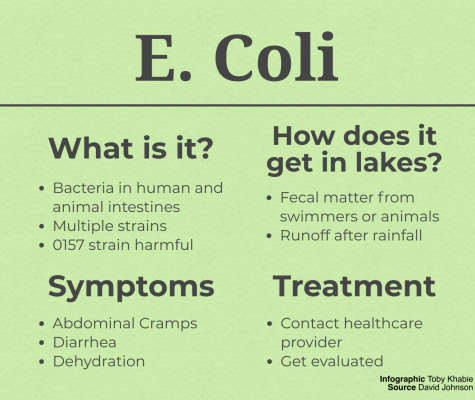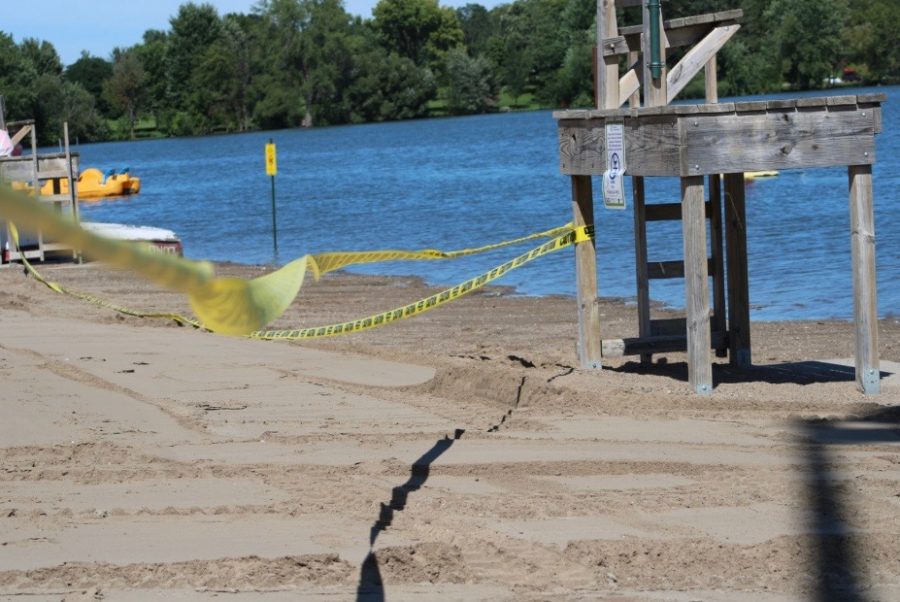E. Coli shuts down beaches
Bacteria contaminates city lakes, infects many
Yellow caution tape blocks swimming at Lake Nokomis due to positive E. Coli tests. According to the Minneapolis Park and Recreation Board, the beach on Lake Nokomis will not be open for the remainder of the year.
September 2, 2019
When E. Coli forced multiple lakes around the Twin Cities to close, sophomore Thomas Hanson said he was disappointed because he couldn’t complete his sailing license.
“One of the tests we had to do to get our sailing license was in (Lake of the) Isles, but we couldn’t, so I couldn’t get my license,” Hanson said.
The recent closures have reduced overall use of lakes for fear of getting infected, according to the Star Tribune.
According to David Johnson, Manager for Epidemiology at Hennepin County Public Health, over 70 cases of E. Coli have been reported from Lake Nokomis alone as of Aug. 21.
“The recent closing at (Lake) Nokomis was done specifically because there were people who got sick with E. Coli and they went to their doctors and got tested, and if you test positive with E. Coli that information goes to the State Health Department,” Johnson said.

Lake Minnetonka also had several waterborne cases, but Johnson said he is not sure of its connection with E. Coli.
“For the Lake Minnetonka outbreak, we had 198 cases we identified,” Johnson said. “The Lake Minnetonka situation was a little bit different, we are not certain that one is not E. Coli, we can’t rule it out.”
The source of the outbreaks is unknown, but outbreaks are often associated with high amounts of rainfall, which was present around the metro area this summer. According to the Star Tribune, the Twin Cities has received the highest amount of precipitation since 1892 and has had the most beach closures since 2003, which is when the Minneapolis Park Board started testing for E. Coli.
According to sophomore Logan Epp, the beach closings were a disappointment to many who wanted to cool off in the lake.
“It’s a little weird because you can go to the beach to hang out but you can’t go into the lake anymore,” Epp said.
Johnson said not all beach closures have been a result of reported cases of E. Coli in people. Some beaches have been closed because E. Coli was detected in the water.
“Some of the beaches that have been closed are because of a routine test that has been done that has detected some presence of E. Coli in the water, so out of caution the lakes will be closed,” Johnson said.
Johnson said the lakes that are currently shut down will either be reopened when testing for E. Coli comes back negative or will be closed for the rest of summer.




